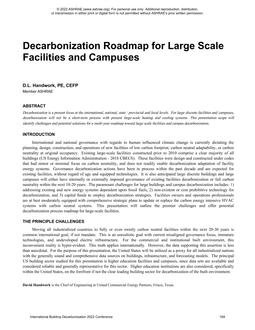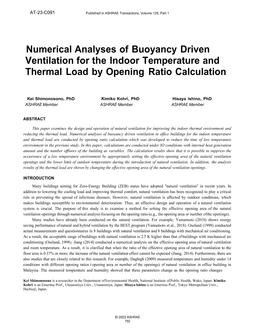
LV-22-C031 – Studying the Effects of Suction Chamber Intrusions and Housing Proximity on Backward Centrifugal Fan Performance Utilizing Computational Fluid Dynamics
Click here to purchase
Implementation of centrifugal fans into the built environment is common in industry today. Centrifugal fans are an efficient and economical optioncapable of producing the pressure and airflow required for modern building systems. This research uses computational fluid dynamics to investigatehow fan performance is impacted by suction chamber intrusions and the proximity of the housing wall to the fan discharge. Current industry trendsshow the motor being moved further into the suction chamber of the fan. The proximity of the housing to the fan discharge influences the efficiency of thefluid flow. It is desirable to understand the impact both cases have on fan performance in order to balance manufacturing with a compact efficientdesign. Intrusions into the suction chamber and housing proximity both have clear design conditions that should be avoided. The depth of the suctionchamber intrusion is seen to marginally affect the performance of the fan within the same operating zone until the motor-cap is inserted over 50% of thetotal depth of the suction chamber. Beyond this point a clear reduction of performance occurs as the minimum pressure is pushed outside the suctionchamber. An optimal housing proximity of 135% of the fan diameter, for this system, achieves maximum total efficiency. Shrinking the housing belowthis value is detrimental to performance.
Product Details
- Published:
- 2022
- Number of Pages:
- 8
- Units of Measure:
- Dual
- File Size:
- 1 file , 2 MB
- Product Code(s):
- D-LV-22-C031
- Note:
- This product is unavailable in Russia, Belarus

